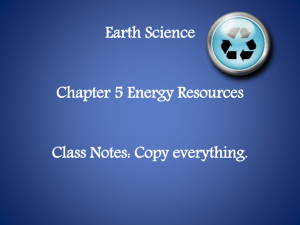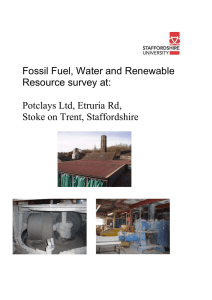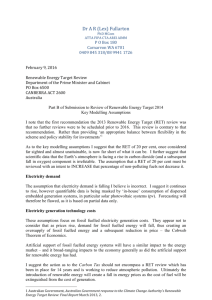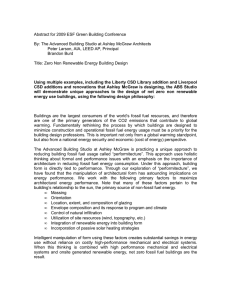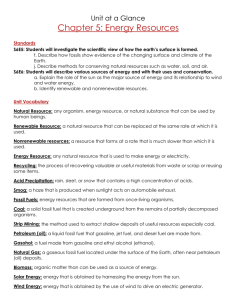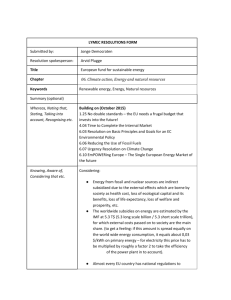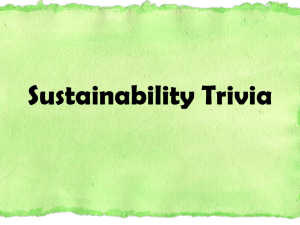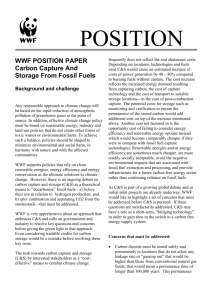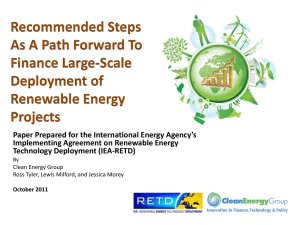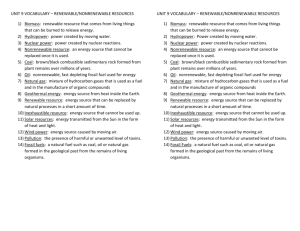Submission to RET review Fossil fuel supplies are finite, and must
advertisement
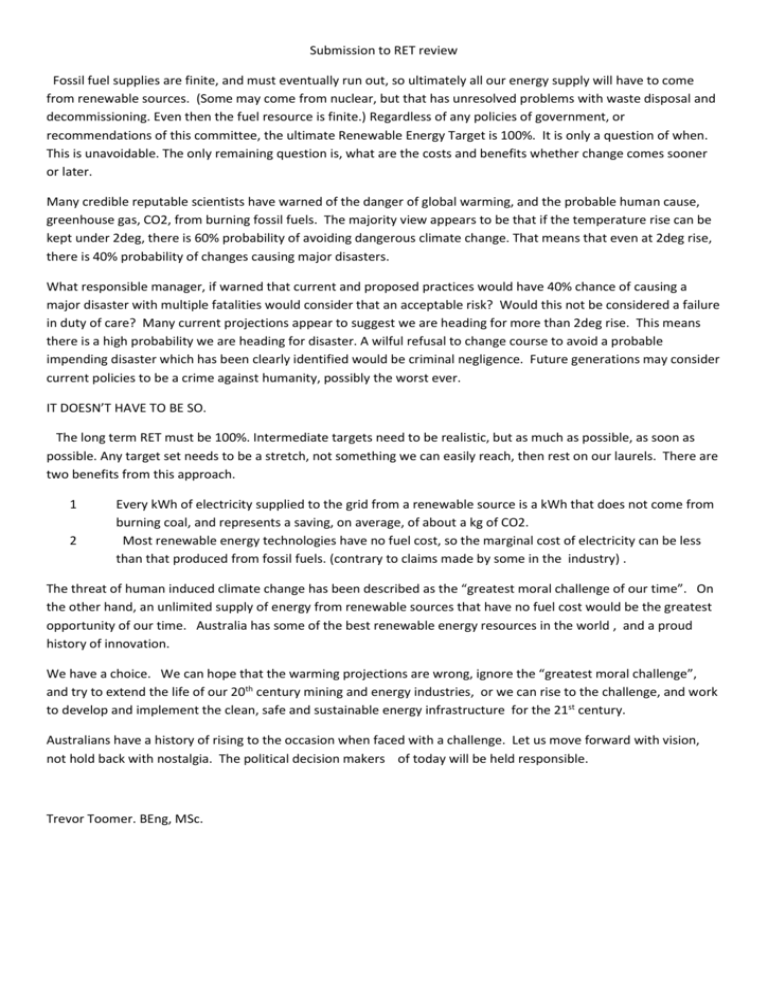
Submission to RET review Fossil fuel supplies are finite, and must eventually run out, so ultimately all our energy supply will have to come from renewable sources. (Some may come from nuclear, but that has unresolved problems with waste disposal and decommissioning. Even then the fuel resource is finite.) Regardless of any policies of government, or recommendations of this committee, the ultimate Renewable Energy Target is 100%. It is only a question of when. This is unavoidable. The only remaining question is, what are the costs and benefits whether change comes sooner or later. Many credible reputable scientists have warned of the danger of global warming, and the probable human cause, greenhouse gas, CO2, from burning fossil fuels. The majority view appears to be that if the temperature rise can be kept under 2deg, there is 60% probability of avoiding dangerous climate change. That means that even at 2deg rise, there is 40% probability of changes causing major disasters. What responsible manager, if warned that current and proposed practices would have 40% chance of causing a major disaster with multiple fatalities would consider that an acceptable risk? Would this not be considered a failure in duty of care? Many current projections appear to suggest we are heading for more than 2deg rise. This means there is a high probability we are heading for disaster. A wilful refusal to change course to avoid a probable impending disaster which has been clearly identified would be criminal negligence. Future generations may consider current policies to be a crime against humanity, possibly the worst ever. IT DOESN’T HAVE TO BE SO. The long term RET must be 100%. Intermediate targets need to be realistic, but as much as possible, as soon as possible. Any target set needs to be a stretch, not something we can easily reach, then rest on our laurels. There are two benefits from this approach. 1 2 Every kWh of electricity supplied to the grid from a renewable source is a kWh that does not come from burning coal, and represents a saving, on average, of about a kg of CO2. Most renewable energy technologies have no fuel cost, so the marginal cost of electricity can be less than that produced from fossil fuels. (contrary to claims made by some in the industry) . The threat of human induced climate change has been described as the “greatest moral challenge of our time”. On the other hand, an unlimited supply of energy from renewable sources that have no fuel cost would be the greatest opportunity of our time. Australia has some of the best renewable energy resources in the world , and a proud history of innovation. We have a choice. We can hope that the warming projections are wrong, ignore the “greatest moral challenge”, and try to extend the life of our 20th century mining and energy industries, or we can rise to the challenge, and work to develop and implement the clean, safe and sustainable energy infrastructure for the 21st century. Australians have a history of rising to the occasion when faced with a challenge. Let us move forward with vision, not hold back with nostalgia. The political decision makers of today will be held responsible. Trevor Toomer. BEng, MSc.

